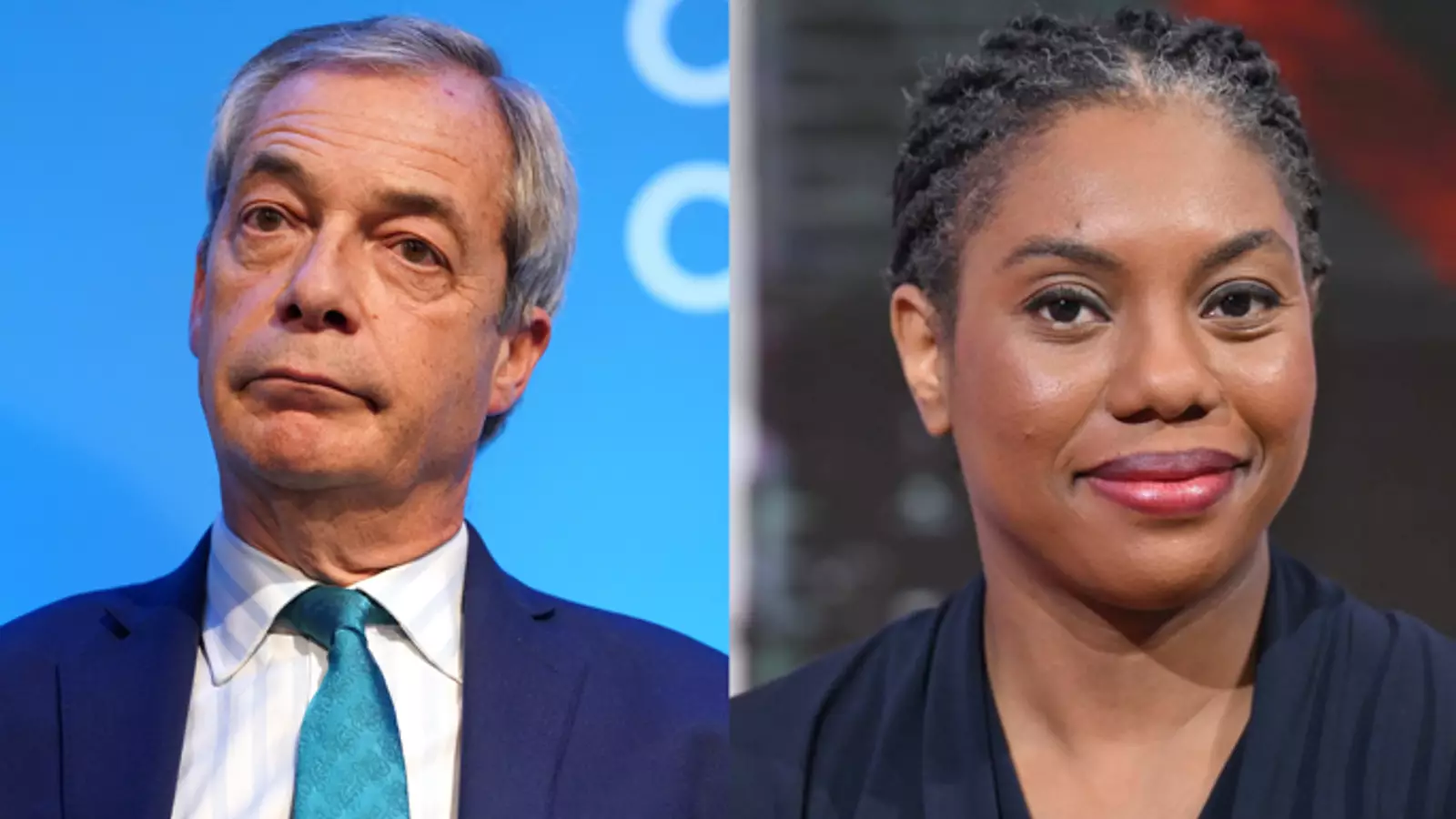The political dynamics in the UK are undergoing a significant transformation, as recent polling data unveils a compelling narrative of changing voter sentiments. An exclusive YouGov poll for Sky News indicates that Reform UK, spearheaded by Nigel Farage, has gained considerable ground against the Conservative Party, currently led by Kemi Badenoch. These emerging trends suggest a seismic shift in the electoral landscape, with profound implications for both parties moving forward.
Brand perception plays a pivotal role in political success, and the data highlights a stark contrast between the two parties. Only a meager 10% of voters perceive the Conservative Party as strong, while a staggering 61% view it as weak. This bleak assessment underscores the continued damage the Tory brand has sustained over recent years. Reform UK, conversely, appears to be capitalizing on this weakness, with 31% of voters regarding it as strong and only 27% seeing it as weak. This suggests that Reform UK enjoys a more robust image among voters, a crucial asset in a political battle where perception shapes reality.
Another key indicator of political viability is whether the electorate believes a party possesses a clear sense of direction. Here, the contrast is telling. Just 18% of voters feel the Conservatives have a clear purpose, with a significant 59% expressing uncertainty regarding the party’s direction. Reform UK, on the other hand, garners a distinctly more favorable response, with nearly half (49%) of voters believing the party has a clear sense of purpose. This suggests that Reform UK may be better positioned to resonate with voters searching for a party that articulates its goals and values decisively.
Trustworthiness is another vital component of voter consideration, and the current polling underscores the Conservative Party’s struggle in this arena. Only 11% of respondents consider the Tories trustworthy, while 65% regard them as untrustworthy. In comparison, Reform UK fares better, with 19% of voters deeming it trustworthy and 52% untrustworthy. Although the trust gap may be smaller, the implications are still significant; Reform UK’s ability to project a more trustworthy image could be pivotal in securing support from disillusioned Conservative voters.
Reflecting on historical voting trends reveals an intriguing shift in allegiances. A decade ago, Farage’s UKIP was often relegated to the fringes of political legitimacy, dominated by perceptions of toxicity. However, the current landscape presents a more favorable scenario for Reform UK. Polling data suggests that the percentage of voters who would never vote for the Conservative Party aligns closely with those ruled out for Reform UK—55% and 56%, respectively. This parity indicates that both parties have similar challenges in broadening their appeal, yet also highlights an opportunity for Reform UK to tap into a disenchanted voter base.
Analyzing the potential voter demographics reveals even more encouraging data for Reform UK. Among the electorate that cast their votes for Reform UK in the previous election, 46% can confidently rule out voting for the Tories. Conversely, only 36% of past Conservative voters are similarly resistant to backing Reform UK, illustrating a more significant proportion of Conservative voters open to tactical voting. This indicates that reform-worthy platforms and policies could attract Conservative voters seeking alternatives to the current party leadership.
The insights revealed by the YouGov poll illuminate a crucial moment for the Conservative Party and the rising Reform UK. As disillusionment with traditional party brands spreads, the importance of image, clarity of purpose, and trustworthiness becomes paramount. The shifting political winds suggest that if Reform UK continues to refine its messaging and capitalize on the weaknesses of its rivals, it stands to significantly disrupt the established order within UK politics and potentially reshape voter behavior in ways not seen in recent years. As the electorate continues to reassess its allegiances, the unfolding political narrative is one to watch closely as it holds the potential for extensive ramifications in the near future.


Leave a Reply